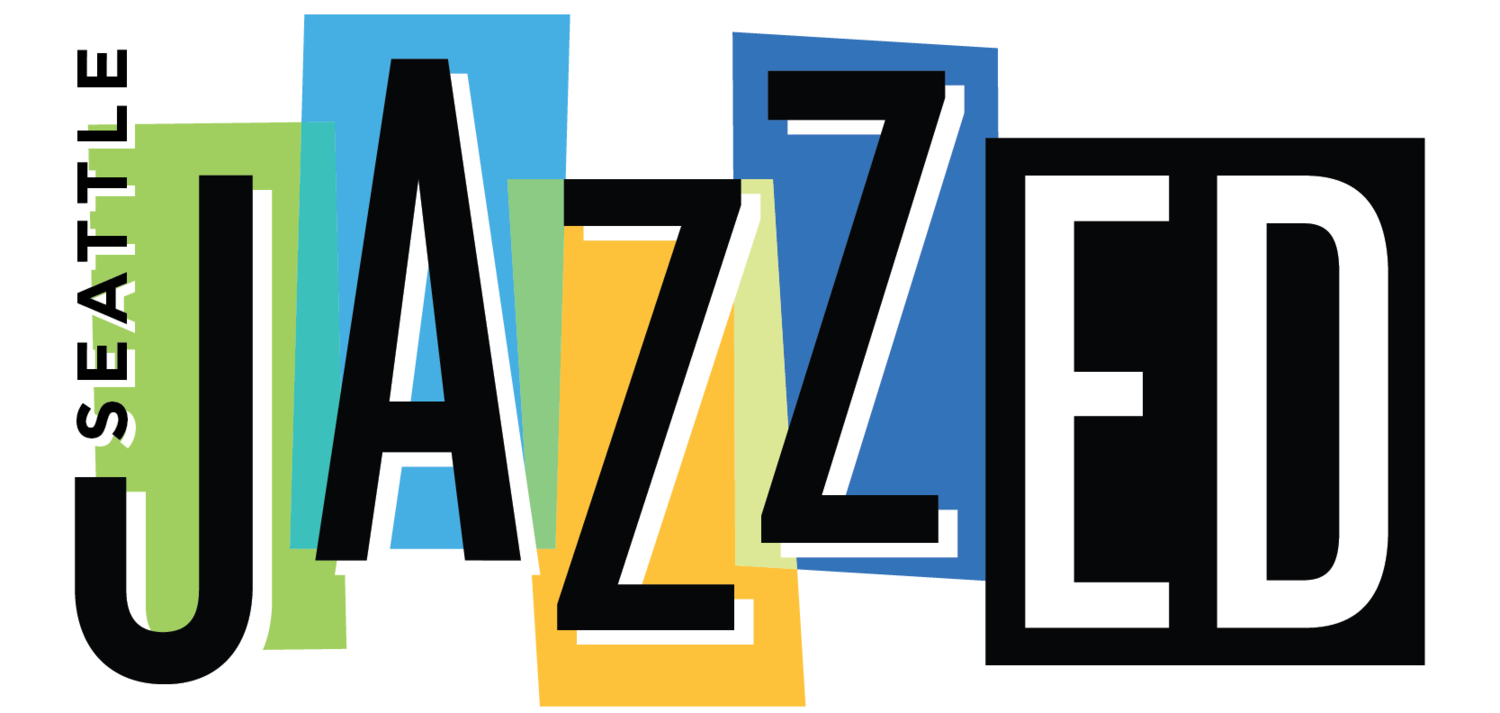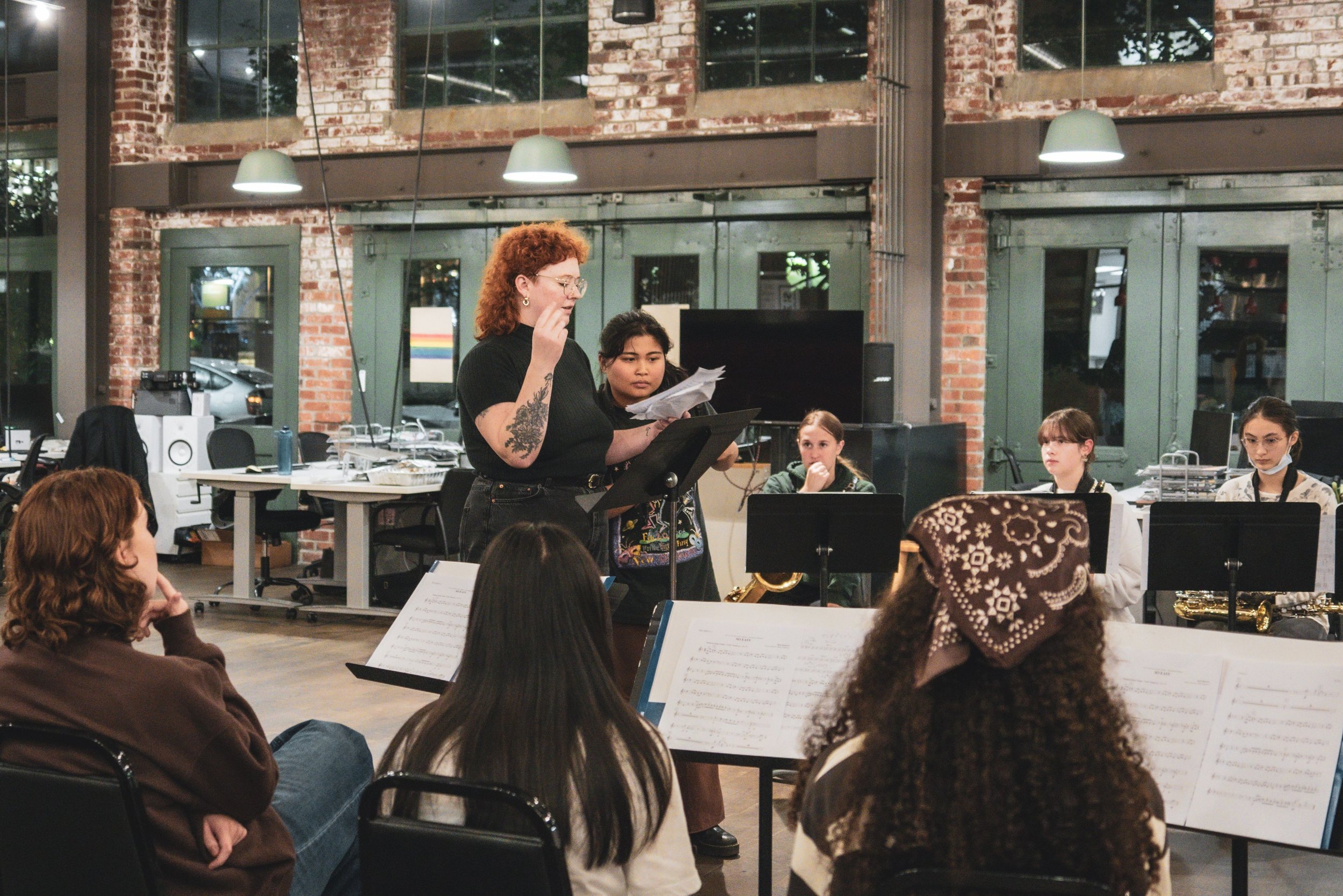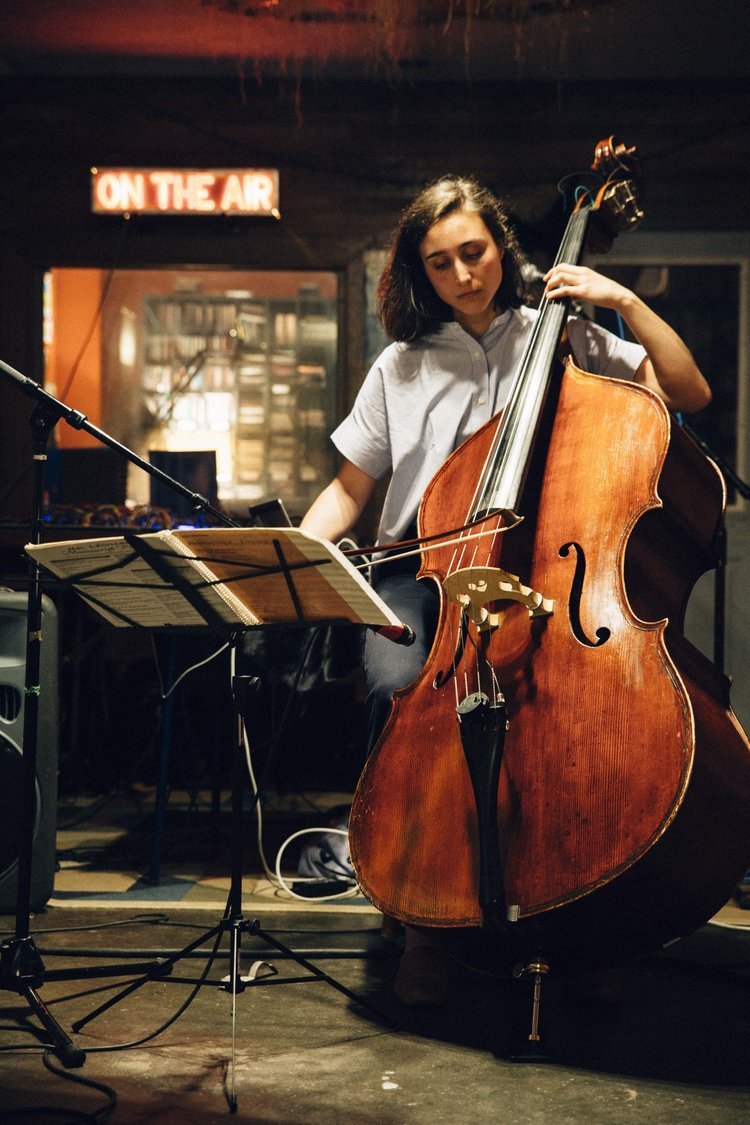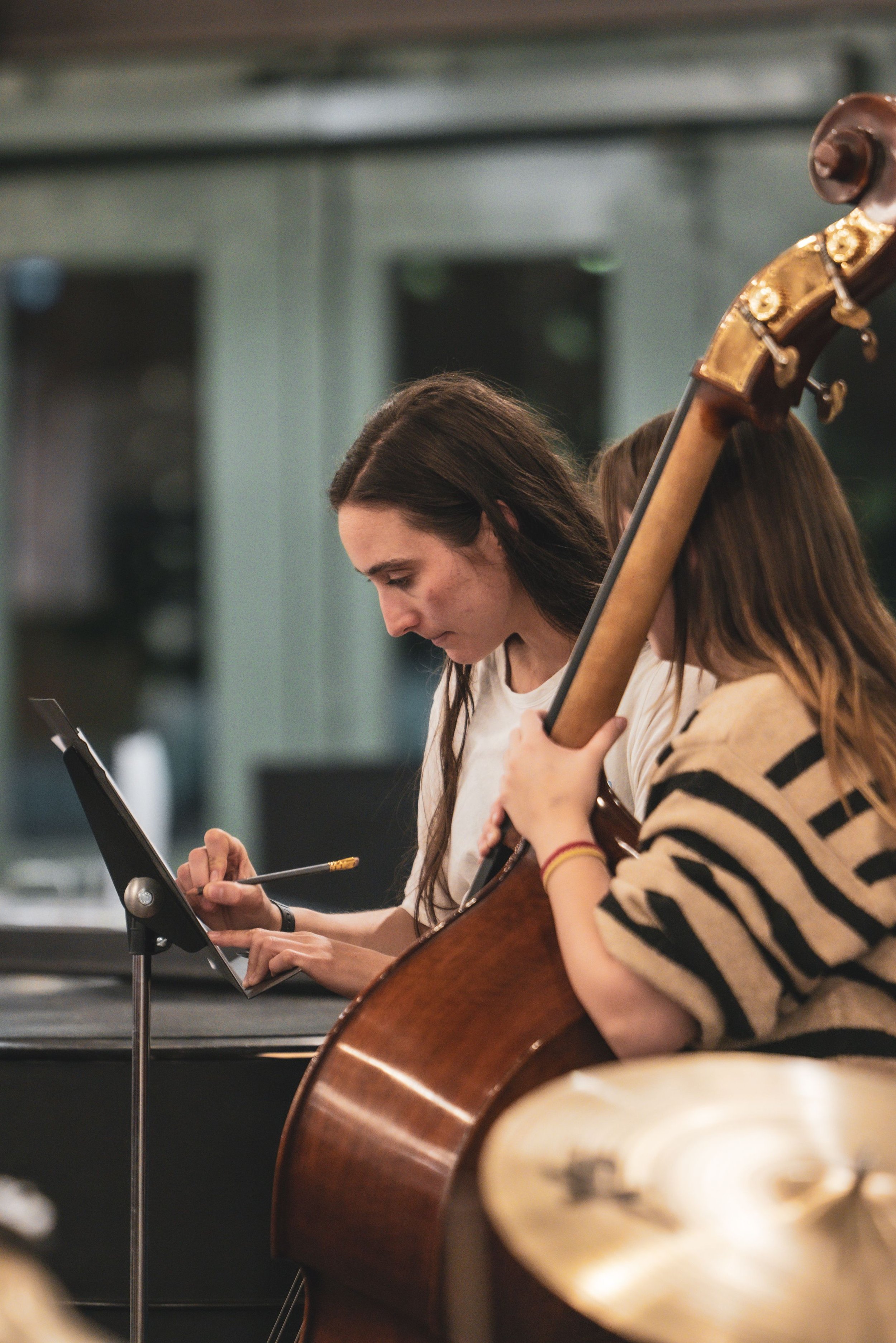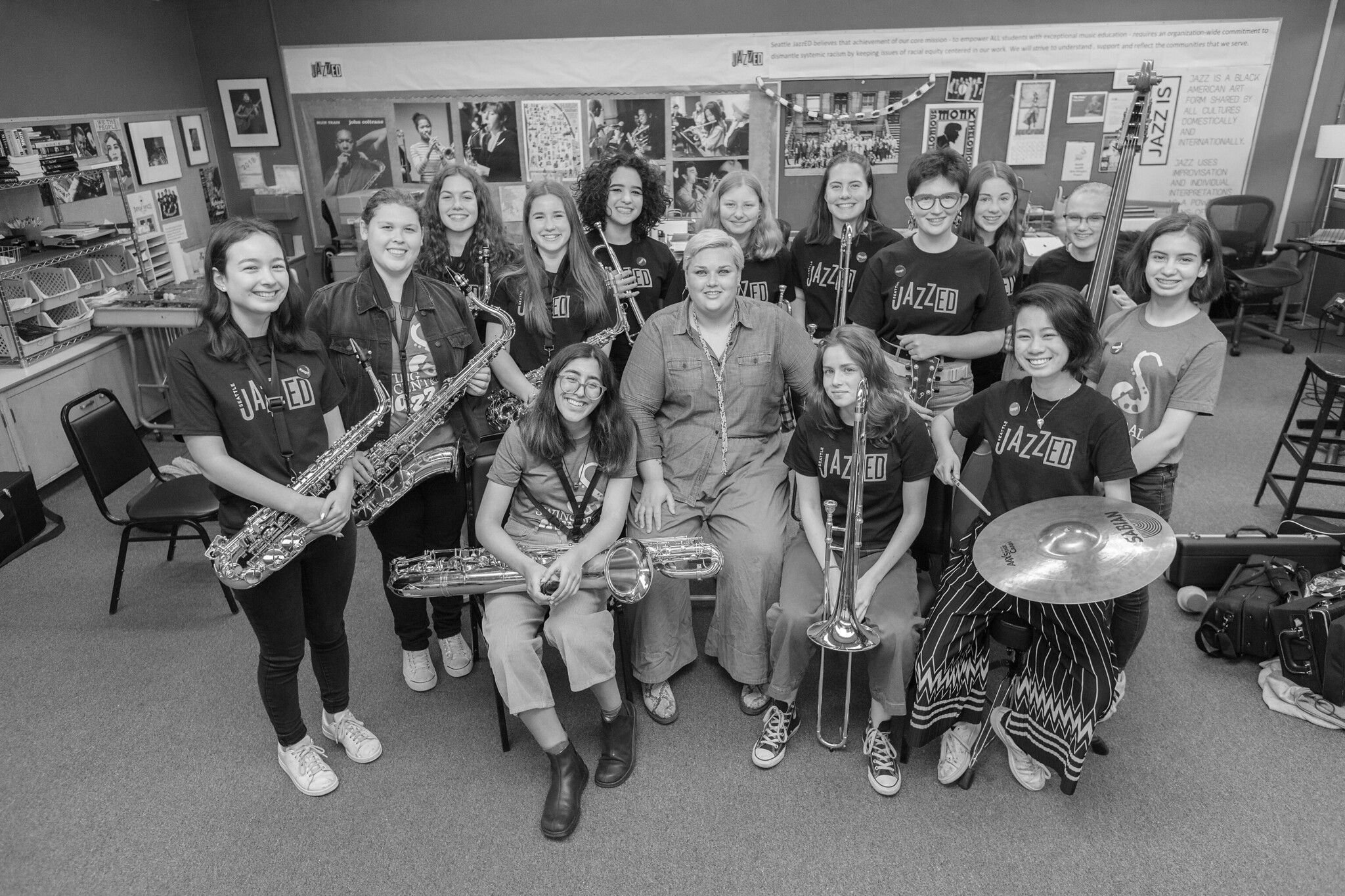Honoring the Past, Shaping the Future: Meet the New Educators of the Girls Ellington Project
/After an incredible decade of passion and dedication, Kelly Clingan, the soulful leader of Seattle JazzED’s Girls Ellington Project, has passed the baton to four new educators. The project, founded in 2012, is a beacon of inspiration, allowing girls and gender-diverse high school musicians to explore the works of Duke Ellington. Under Kelly’s guidance, this project stands out for its focus on community building, collaboration, and inclusion.
While Kelly remains an advisor, we can’t contain our excitement as we introduce you to the new quartet of educators who are stepping into this leadership role: Abbey Blackwell, Katyrose Jordan, Marissa Kall, and Audrey Stangland.
Click each photo to learn more about our educators.
What More Educators in the Classroom Means for Students
The Girls Ellington Project will benefit from having more teachers in this classroom, bringing fresh perspectives and exciting energy. This means more expertise and a rich exchange of ideas and skills between educators and students, resulting in a more well-rounded and inclusive educational environment.
Abbey Blackwell captures the essence of what multiple teachers can offer: “I feel that having multiple teachers in the classroom, giving hands on examples and insight to the students’ playing, will be an invigorating experience and a fun way for the students to learn.”
With the addition of four educators, the classroom becomes a dynamic platform where ideas and skills intersect and blend, scaffolding in collaboration, a core jazz value, for both students and teachers. In the end, everyone learns there isn’t a single “right” way to do things, which fosters individual voices in a diverse setting.
Students develop a versatile skill set that can extend beyond music into all aspects of life. As various backgrounds and talents come together, students will receive more collaboration opportunities that promote teamwork and unity in their performances. Plus, in this non-audition ensemble, students can show up as themselves and our educators can identify and nurture these individual strengths for a more fulfilling musical education experience for each student.
The Girls Ellington Project also places a strong emphasis on creating a safe space for the musicians. Katyrose reminds us of this importance, sharing, “Many people who experience gender-based discrimination don’t get safe spaces, equitable education, support, representation, or basic respect in the classroom.” Our educators understand the significance of cultivating an environment where students can be themselves, free from discrimination and full of support.
In this environment, our educators teach and learn from each other to facilitate a special and unique place they would have loved during their own upbringings. In the words of Audrey, “Being a part of this project will be such a great learning experience not only for the students, but for us teachers as well! I am all about teaching people to play with confidence and authority, and I think that is my strongest quality in my trombone playing. Playing alongside students with a big confident sound and strong stylization really helps them start to play with that same vigor.”
And with all this to say, what they learn will go beyond the classroom. Marissa’s hope is that the musicians take the lessons they learn — jazz, courage, and communication — and feel empowered by it inside the music classroom and out in society.
Continuing the Legacy with a Unique Perspective
As the Girls Ellington Project moves forward, Marissa shares, “Following the legacy that Kelly built through the program, and creating a safe, non-competitive space for femme musicians to play jazz is a huge responsibility.”
While the Girls Ellington Project mission stays the same, the classroom dynamics will undoubtedly transform. As Katyrose puts it, “Each of the new educators has their own unique musical background and style of teaching. We were raised in different communities with different perspectives, instrumental backgrounds, instructors, and experiences!”
This diversity is a strength. It allows our educators to bring something different to the table, creating a rich tapestry of perspectives and approaches that breathe new life into the project. This is a true Ellington value. He would rewrite, rework, and remove songs from his library when personnel shifted. Individual voice was a core tenant of his music.
Moreover, it’s not just about the melodies. Audrey emphasizes what makes the Girls Ellington Project particularly compelling: “They are already so excited about music and are eager to learn more about jazz, and they simultaneously get to build friendships with other likeminded folks! It’s so valuable to build relationships with people who share similar experiences in the music world, especially when those experiences relate to their gender.”
Abbey echoes the sentiment, emphasizing the intrinsic rewards of working with our young musicians: “Working with young adults is particularly rewarding when I get to see them learn how to appreciate music while also growing with other young musicians in their band. Cultivating a sense of community through music is a crucial step to appreciation and continuing to stay involved in music and art.”
Each educator’s experience will help the girls improve their understanding and overall connection with their instrument, the music, the history, and most importantly themselves.
Some Words of Advice
To inspire more femme musicians to become part of the Girls Ellington Project, we asked each educator to share one piece of advice to aspiring musicians and those curious about the project.
“I want these students to know that what they have to say is valuable, and to not be afraid to take up space! This band is a really awesome space for students who have been raised/socialized as girls and may feel a bit more cautious in a male dominated space. I think this class is such a cool place to really feel like you can speak out, make mistakes, and really build confidence in your musicianship.” – Audrey Stangland
“Learning a new instrument or strengthening your chops in a group is such a fun and applicable way to level up your playing. Listening is the most important part of playing music, and being in a band is the best way to get your ears working, not to mention you get to play fun music with your peers.” – Abbey Blackwell
“No advice per se, because at the core of this project is to empower and support its members no matter what stage or state of musicianship and life they happen to be in. The only suggestion I can make would be for prospective students to bravely self-advocate as much as possible, and to know they are deserving of every single opportunity the find.” – Katyrose Jordan
“If anything in this article speaks to you or sparks some curiosity, please come and join us on Tuesday nights at 6pm! There’s zero pressure. Everyone is at a different level in their jazz and big band studies, and we make sure to tailor lessons for everyone’s comfort level. There are no grades and most importantly lots of high fives, smiles, music, and good times. Please join us…we need YOU to be in the Girls Ellington Project!” – Marissa Kall
The transition of leadership within the Girls Ellington Project marks a significant moment in its journey. Audrey, Abbey, Marissa, and Katyrose bring a wealth of experience and a shared passion for teaching young femme and gender-expansive musicians. With these new educators at the helm, the future holds exciting possibilities for both the project and musicians.
Want to engage and learn with our Girls Ellington Project’s educators and students? Classes meet every Tuesday, from 6-8 PM, at the Seattle JazzED office.
As of July 2024, Girls Ellington Project has been renamed Femme Ellington Project. For more information on the name change, click here.
